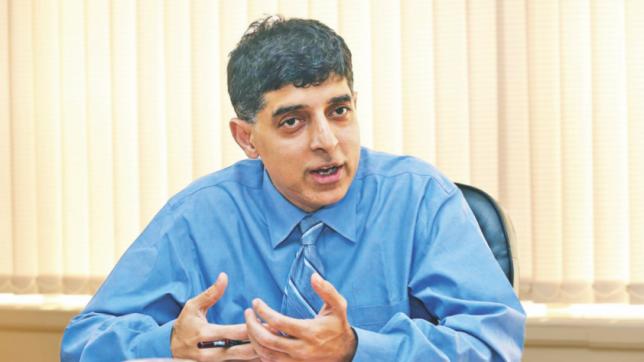Pran-RFL: the ideal bank borrower

Pran-rfl Group has never defaulted on any of its loans even despite borrowing thousands of crores of taka from banks to run its massive operations -- a remarkable feat in a country where default culture is becoming deep-rooted.
“Our principle is to return the debt on time,” said Ahsan Khan Chowdhury, chairman and chief executive of Pran-RFL Group, which has about Tk 10,000 crore in bank loans.
Chowdhury's comments came in a freewheeling interview recently with The Daily Star, during which he shared his plans for the pioneering food exporter, which has recognised with the coveted National Export Trophy for 14 years in a row.
The 48-year-old, who succeeded his father Amjad Khan Chowdhury following his death in 2015, dreams of taking Pran to the global stage in a big way.
And neighbouring India can be one of the biggest markets for Pran. “We dream of selling 10 times more in India than in Bangladesh.”
Other than India, the company has set its sights on Australia and the Netherlands, where it would make its full-fledged entry under local names and not the Pran brand.
But for going global, capital account convertibility is crucial, which is a no-go for the Bangladesh Bank as of now.
Capital account convertibility allows the freedom to convert local financial assets into foreign financial assets and vice versa. It includes easy and unrestricted flow of capital for all purposes.
“We must set up a factory abroad if we want to be a global company.”
There are some companies in Bangladesh -- particularly 4-5 pharmaceuticals -- that are world-class, according to Chowdhury.
“Our local companies can make very good products. If they are allowed to set up factories abroad, their footprint will expand.”
Chowdhury also shed light on why big Bangladeshi business giants, such as Pran-RFL, do not raise money from the capital market.
“Doing business with other's money is a risky thing. If I can't give dividend to shareholders, it will be tensed.”
He also stressed on the growing need for working capital, both in local and foreign currencies.
But he lamented not getting the capital in foreign currency due to the central bank's embargo.
“When your business has grown, you need a lot of working capital. But the Bangladesh Bank doesn't allow foreign currency working capital,” he said, adding that their competing companies in Indonesia, Vietnam and Malaysia get low-cost foreign funding.
“We have to think big to become big.”
The journey for Pran-RFL began in 1981 when his father Amjad Khan Chowdhury entered the world of business after retiring from army.
Since its inception in 1981 as a manufacturer of light engineering products, PRAN-RFL Group has diversified into many areas.
Now, the group has 25 companies in areas such as plastic products, processed foods, garments, dairy, bicycle, furniture, cable and electronics. It has set up factories in 13 locations in the country.
Its combined sales turnover was about Tk 6,000 crore last year and it may rise 30 percent to Tk 8,000 crore at the end of 2018. The company employs about 100,000 people.
Over the years, quality food products bearing the Pran brand have not only been savoured by consumers in Bangladesh but also exported to more than 140 countries. Its export crossed the $300 million-mark last fiscal year.
But this success did not come easily, he said, while remembering his father's struggle.
“Pran has taken all the low-cost financing facilities of the government. In fact, Pran Dairy is the creation of the government's matching grant.”
The company also took funds from the Entrepreneurship Equity Fund provided by the Bangladesh Bank.
The businessman also talked about quality, especially in food products.
“When you are selling millions of pieces, one can go wrong. We don't say we are perfect, even the best companies in the world make mistakes,” Chowdhury said, while acknowledging their limitations.
He also stressed on the importance of developing a distribution channel for making businesses successful.
“We understand the distribution channel very well. But if we want to go abroad, we prefer local channel to our own,” he said.
